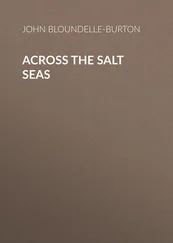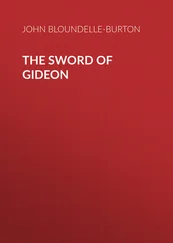John Bloundelle-Burton - The Hispaniola Plate
Здесь есть возможность читать онлайн «John Bloundelle-Burton - The Hispaniola Plate» — ознакомительный отрывок электронной книги совершенно бесплатно, а после прочтения отрывка купить полную версию. В некоторых случаях можно слушать аудио, скачать через торрент в формате fb2 и присутствует краткое содержание. Жанр: foreign_antique, foreign_prose, на английском языке. Описание произведения, (предисловие) а так же отзывы посетителей доступны на портале библиотеки ЛибКат.
- Название:The Hispaniola Plate
- Автор:
- Жанр:
- Год:неизвестен
- ISBN:нет данных
- Рейтинг книги:4 / 5. Голосов: 1
-
Избранное:Добавить в избранное
- Отзывы:
-
Ваша оценка:
- 80
- 1
- 2
- 3
- 4
- 5
The Hispaniola Plate: краткое содержание, описание и аннотация
Предлагаем к чтению аннотацию, описание, краткое содержание или предисловие (зависит от того, что написал сам автор книги «The Hispaniola Plate»). Если вы не нашли необходимую информацию о книге — напишите в комментариях, мы постараемся отыскать её.
The Hispaniola Plate — читать онлайн ознакомительный отрывок
Ниже представлен текст книги, разбитый по страницам. Система сохранения места последней прочитанной страницы, позволяет с удобством читать онлайн бесплатно книгу «The Hispaniola Plate», без необходимости каждый раз заново искать на чём Вы остановились. Поставьте закладку, и сможете в любой момент перейти на страницу, на которой закончили чтение.
Интервал:
Закладка:
"What we want to know is this," said Alfred, "and you're the person to tell us. What is there stored away down in the vaults below the strong room? We haven't been down there for years; not since we were boys and our father used to let us go down sometimes. There seemed to be only an awful lot of mouldering rubbish, and it'll all have to be gone over and either destroyed or fetched up before the builders go to work on the foundations."
"So there is a lot of rubbish," replied Creech, "though I haven't been down there myself for over twenty years. The last time I was down was when the Prince o' Wales went to return thanks at St. Paul's. I remember it because I found a bottle of port wine on a ledge, and we drank his health as he went by. I told your father about it afterwards, and he said it must have been some of the Waterloo port his father had had given him."
"What else is there?"
"A lot of rubbish," repeated Creech. "There's several old boxes, most of them burst open, with leases, I should say, belonging to dead and gone customers of the bank, and a heap of broken old furniture that belonged upstairs when the family lived over the bank. I found a fine copper warming-pan, that Mr. Jones made me a present of; and I think there's an old spinet down there, and broken chairs and tables, and office stuff, and a basket full of broken glass and crockery, and that sort of thing."
"Humph!" said the elder brother. "Leases, eh? We ought to look into those. If they're ours we ought to preserve them, and if they belonged to customers who have left descendants, they should be returned. They may still be of the greatest value. Who can tell?"
" My wife," said the younger, "has been filling the new house at Egerton Gardens full of the most awful-looking gimcracks I ever saw. She'll want that spinet directly she hears of it, and if she could only find another warming-pan she'd hang it up in the bedroom passages as an ornament."
" My wife," said Creech, "warms the beds with ours in the winter. It's a very good one, but I'll send it back if Mrs. Jones wants to decorate her landing."
"No," said Jones Junior, "we'll say nothing about it. There's far too much rubbish in the house already. Suppose," to his brother, "we go down into the vaults and have a look round."
This was agreed to, so down they went, after Creech had armed himself with a large paraffin candle and had rummaged out a bag full of keys of all sizes and shapes, while the elder Jones carried with him the more modern and bright keys that opened the safes and strong room. This latter they were, of course, in the habit of visiting every day, but the trap door leading to the vaults below-which was in the floor of the strong room-testified to the truth of Creech's assertion that it possibly had not been opened for twenty years. First of all, when the key was found, the lock was so rusty that it could not be turned until some oil had been brought, and then the door had stuck so that the two brothers-for Creech was no good at this work-could hardly pull it up. However, at last they got it open, and then they descended the stone steps one by one.
The place-as seen by the light of the candle-was, as the old cashier had described it, an olla-podrida of all kinds of lumber. The hamper of broken glass and crockery was there, so was the spinet, looking very antique and somewhat mouldy-a thing not to be wondered at, seeing that the Jones family had not lived over the bank during the present century. The broken chairs, stools, and tables were all piled in a corner-in another stood the boxes, some of them burst open, of which Creech had spoken. And around and about the vaults there pervaded the damp atmosphere which such places always have. The cashier had brought a second candle in his pocket, which he now lit, and by this additional light they saw all that there was to be seen.
"A lease of a farm in Yorkshire," said Alfred, taking up the first one that lay loose on the top of the first box, whose rusted padlock came off it, nails and all, as they touched the lid, "called Shrievalls, from the Earl of Despare to Antony Jones. Lor' bless me! Why, Shrievalls has been in our family for any amount of time, and I never heard of the Earl. I suppose we bought it afterwards. That's no use to anyone. What's this? A covenant of the Earl of Despare to pay an annuity to Ambrose Hawkins for the remainder of his life, made in the year 1743; that covenant has expired! That's no use to any one, either. A bundle of acceptances by Sir Marmaduke Flitch to Peter Jones-our great-grandfather. Flitch! Flitch! No knowledge of him either. An authority from Annabella Proctor to pay to her brother, so long as he holds his peace-humph! – ha! – well, that's an old family scandal-we needn't read that just now. Transfer of a lease from Mr. Stringer, son of Sir Thomas Stringer, a judge of the King's Bench, to Mr. Samuel Wargrave, late silversmith and jeweller, of Cornhill, now of Enfield, dated 1688. I suppose one or the other of them was a customer of the bank."
"Then it was Wargrave!" exclaimed Creech. "I've seen that name in some of our old books. At least, I think I have. Let me see-Wargrave. Where have I seen it? I know it somehow."
"It can't matter," said the younger Jones. "There has been no Wargrave on our books for a long while."
"A bundle of letters," went on the elder, taking them up, "from the Lady Henrietta Belville to Bartholomew Skelton, Esquire, at the University of Leyden, with one beginning, 'My dear and only love, – Since my 'usband is away to York'-Oh, dear! dear! we needn't read that now."
"I should think not," said the younger brother. "The Skelton family still banks with us. We had better send the letter back intact. Bankers should keep secrets as well as lawyers."
"Wargrave," mumbled Creech to himself, as he leaned against an antique office-stool minus a leg. "Wargrave! Where have I heard the name?"
"An account book with no name in it but a date. And written therein, 'On behalf of the Earl of Mar, his expedition.' Humph! ha! well, we had a good many Jacobites among our old customers. What's this? A glove with a lot of tarnished silver fringe about it, a woman's-these are romantic finds! – a bunch of withered flowers, almost dust, and a little box-"
"That's it," exclaimed Creech, "a box with the name of Wargrave on it. That's it!"
"On the contrary, Creech, there is nothing on it; but, inside, a paper with written on that, and badly spelt, too-'His hair. Cut from his head by a true friend after his death at the Battle of Clifton Moor.'"
"No, no," said Creech, "I don't mean that box. I mean there is a box somewhere in this vault-a small one, with the name of Wargrave on it."
"There are a good many boxes with names on them," said one of the brothers, glancing round; "and I doubt if any speak more pathetically of the past than this one with its wisp of withered hair and its label."
But Creech was hunting about in the rubbish by now, and at last, exclaiming, "That's the one I mean," seized on a small iron box a foot square and brought it to where the partners and candles were.
"That," he said, as he plumped it down on the spinet, which emitted a rusty groan from its long-disused keys as he did so, "is the box I mean. I remember seeing it years and years ago. Look at what's written on it."
In faded ink, brownish red now instead of black, on paper a dirty slate colour instead of white, were the words: -
This box is to be given to any descendant or representative of Lieutenant Nicholas Crafer who is alive at my death. To be given at once after, but not before. – Samuel Wargrave.
Nota Bene . – I do believe it is very important.
January , 1709.
"And," exclaimed the younger brother, "being so very important it has lain here for over 180 years. We have been assiduous for our customers."
Читать дальшеИнтервал:
Закладка:
Похожие книги на «The Hispaniola Plate»
Представляем Вашему вниманию похожие книги на «The Hispaniola Plate» списком для выбора. Мы отобрали схожую по названию и смыслу литературу в надежде предоставить читателям больше вариантов отыскать новые, интересные, ещё непрочитанные произведения.
Обсуждение, отзывы о книге «The Hispaniola Plate» и просто собственные мнения читателей. Оставьте ваши комментарии, напишите, что Вы думаете о произведении, его смысле или главных героях. Укажите что конкретно понравилось, а что нет, и почему Вы так считаете.












